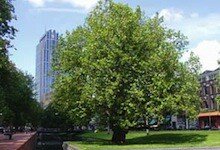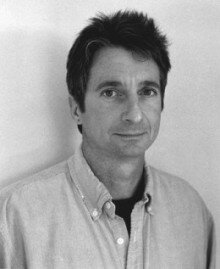
“. . . the poet must stake everything against the world in order to be for the world – that poetry must assume the form, as Blake says, of an excess that constantly opens language to the experience of the possible, and whose ethics is not vested in the poet’s judgment but in the conditions of poetry. It may be that poetry makes nothing happen, if only for the reason that poetry is what happens – it is the language by which the world speaks to what it may become, to its possibility, to its invention.”*
Armand directs the Centre for Critical & Cultural Theory in the Philosophy Faculty of Charles University, along with being the general editor of Litteraria Pragensia, co-editor of the increasingly influential journal VLAK, as well as editor of many collections on contemporary poetics and critical theory. He has published four novels, Breakfast at Midnight (Equus, 2012), Clair Obscur (Equus, 2011), Menudo(Antigen, 2005) and The Garden (Salt, 2001). In addition, he is the author of seven collections of poetry – most recently, Letters from Ausland (Vagabond, 2011) and Synopticon (with John Kinsella; Litteraria, 2012) – and of a number of volumes of criticism, including Solicitations: Essays on Criticism & Culture (Litteraria, 2008).
His poetry has appeared in the anthologies Thirty Australian Poets, The Best Australian Poems, Calyx: 30 Contemporary Australian Poets and The Penguin Anthology of Australian Poetry. In 1997 he received the Max Harris Prize (Adelaide) and in 2000 the Nassau Review Prize (New York). Louis Armand’s paintings have been exhibited at Art Prague, with solo shows at Galery ArtNatur, Gallerie Gambit, Hunger Gallery and Indigo Space. His screenplay for Clair Obscur won honourable mention at the 2009 Alpe Adria Trieste International Film Festival. He is the founder of the Prague Micro-Festival.
At forty, Armand has produced more work in each of his roles than most might be happy to achieve in a lifetime. Along the way, he has unfailingly supported, organised and, when called for, antagonised his contemporaries out of complacency and habit. Armand’s work as a writer, critic and publisher in the context of Australian poetry has done more than most, on the one hand, to introduce a form of cosmopolitanism to Australian writing, and, on the other, to more fully place a question mark over that most ill-defined and arguably perhaps crueling of categories when it comes to literature, the nation, and more pointedly here, ‘Australian’.
In Armand’s writing, ‘Australia’ is a reference point or a point-to-counter, as within his poetry the landscape of the country and its representation in the visual arts and poetry is recurrent and recombinant, so that while not rejected, in Armand’s work previously unargued and unthought layers to ‘Australia’ are made perceptible and representable, while an approach to the familiar acts of representation and signification previously unapproached is opened. Armand’s deep reading in poetics, philosophy and critical theory are apparent, but his poems do not read simply as Applied Textual Theory 101 or a cryptic crossword of guess-who-I’m-referencing-now. Armand’s poetry incorporates, lives and breathes the breadth of the 20th-century thought and poetics he has devoured.
The work that precedes and informs Armand's writing is itself compositional. Jakobson’s analysis of the communication functions of language, Kristeva’s rupture within practice, the nomad poetics of Deleuze and Guattari and Pierre Joris in turn are put to work, not simply on show. This places the reader of Armand's work on the horizon of language, the meeting point of sensual experience, perception and the everyday with cognition, signification and idea, unfolding false dichotomies in their multiple relations and matrices. His poetry works to derealise the abstract processes of signification and unsettle readings of the self and the symbolic alike.
Ali Alizadeh recently developed a reading of Armand’s work in terms of a poetics of unplacement, re-published here on Poetry International, that pushes further into the question of place and self and its unfolding in language, beyond determinations such as ‘nation’ and neo-Romantic regurgitations of the lyric self. Alizadeh sees in Armand’s poetry the development of an ecopoetics. Alizadeh writes:
by refusing to verbally depict and represent place and the environment in his work, he has written poems that are entirely for a conceptualisation of the environment as an unnamable, inestimable and therefore entirely singular being. As such, by refusing to speak about place, Armand’s poetry functions as the language by which place can come into being qua being, as an utterly non-human, unspeakable entity, not sequestered by the poet’s semantic, symbolic and metaphoric demands and compulsions, but open “to what it may become, to its possibility, to its invention”.
Discussing Armand simply as a poet is to truncate a body of work that should be seen as a whole and ongoing, but even so, within that truncated space, further cut short in the small selection offered here, there is the formidable experience of a writer grounded and versed in the inheritance of avant-garde and post-avant poetics, setting language off opened into new possibilities of thought, experience.
* Louis Armand, Essays on Criticism & Culture, Litteraria Pragensia, Prague, 2005, p. 404.
Links
Louis Armand’s website, featuring his writing, photography and painting
Bibliography
Poetry
Letters from Ausland, Vagabond, Sydney, 2011. ISBN 978-0-9805113-8-3
Picture Primitive, Antigen, New York, 2006. ISBN 80-239-6705-3
Strange Attractors, Salt, Cambridge, 2003. ISBN 1-876857-59-5
Malice in Underland, Textbase, Melbourne, 2003. ISBN 0 9578114 7 0
Inexorable Weather, Arc Publications, Todmorden, Lancs., UK, 2001. ISBN 1-900072-59-9
Land Partition, Textbase, Melbourne, 2001. ISBN 0-9578114-2-X
Synopticon (with John Kinsella), Mudlark, Florida, 2000; 2002 (e-publication; forthcoming in print)
Anatomy Lessons, x-poezie, New York, 1999. ISBN 80-86264-01-7
Erosions, Vagabond Press (Rare Objects Series), Sydney, 1999
Séances, Twisted Spoon Press, Prague, 1998. ISBN 80-902171-8-4
The Viconian Paramour, x-poezie, New York, 1998. ISBN 80-902171-3-3
Fiction
Menudo, Antigen, New York, 2006. ISBN 80-239-6197-7
The Garden, Salt, Cambridge, 2001. ISBN 0-646-39543-2
Criticism
Event States: Discourse, Time, Mediality, Prague, Litteraria Pragensia, 2007. ISBN 80-7308-168-3
Literate Technologies: Language, Cognition, Technicity, Litteraria Pragensia, Prague, 2006. ISBN 80-7308-138-5
Incendiary Devices: Discourses of the Other, Charles University Press/Karolinum, Prague, 2006. ISBN 80-246-1024-8
Solicitations: Essays on Criticism & Culture, Litteraria Pragensia, Prague, 2005. ISBN 80-239-5045-2
Technē. James Joyce, Hypertext & Technology, Charles University Press/Karolinum, Prague, 2003. ISBN 80-246-0391-8
As editor
Pornotopias: Image, Desire, Apocalypse (with Jane Lewty & Andrew Mitchel, eds.), Litteraria Pragensia, Prague, 2008. ISBN 978-80-7308-170-6
Language Systems: After Prague Structuralism (with Pavel Černovský, eds.), Litteraria Pargensia, Prague, 2007. ISBN 978-80-7308-171-3
Contemporary Poetics, Northwestern University Press, Evanston, 2007. ISBN 0-8101-2359-2
Samuel Beckett: Textual Genetics & Reception (with Ondřej Pilny, eds.), Litteraria Pragensia thematic issue 17.33, 2007. ISSN 0862-8424
Technicity (with Arthur Bradley, eds.), Litteraria Pragensia, Prague, 2006. ISBN 80-7308-125-3
Towards a New Aesthetics (with Martin Procházka & Brian Rosebury, eds.). Litteraria Pragensia thematic issue 16.32 (2006). ISSN 0862-8424
Avant-Post: The Avant-Garde under ‘Post-’ Conditions, Litteraria Pragensia, Prague, 2006. ISBN 80-7308-123-7
Mind Factory, Litteraria Pragensia, Prague, 2005. ISBN 80-7308-104-0
JoyceMedia, Litteraria Pragensia / Syracuse University Press, Prague, 2004; 2nd edition, 2006. ISBN 80-239-2266-1
Codework / Surveillance special issue of Rhizomes: Cultural Studies in Emerging Knowledge 6, Spring 2003. ISSN 1555-9998
Giacomo Joyce: Envoys of the Other (with Clare Wallace, eds.), Academica, Bethesda, 2002. ISBN 1-930901-46-1. [Revised, expanded paperback edition (Litteraria Pragensia, Prague, 2006. ISBN 80-239-5046-0; with additional work by Hélène Cixous & Gayatri Spivak.]
Contemporary Poetics special issue of Litteraria Pragensia 11.22, 2002. ISSN 0862-8424.
Night Joyce of a Thousand Tiers (with Ondřej Pilný, eds.), Petr Škrabanek: Studies in Finnegans Wake, Litteraria Pragensia / Syracuse University Press, Prague, 2002. ISBN 80-238-8853-6
Links
Poetry available online
Six Parts for a Requiem in Jacket Magazine:
Jacques Cousteau est Mort in Jacket Magazine
Port Lights Shadows & Particles in Jacket Magazine
Correspondences in Jacket Magazine
Croatoan in Jacket Magazine
Abject Relations and Sleeping Positions in Big Bridge
Synopticon (excerpts)
Some Heliotropes; The Geometry Lesson; Incarnedine; Dimensions Variable; Psychology with Nude and Mondrian and Monument to V. Tatlin in Moria
The Vanishing Syndrome in The Cortland Review
Tendances Morbides in The Drunken Boat
Goethe in Venice; Santa Maria dei Monte; Une danseuse ne pleure pas sur scène; On Henrik Galeen’s Student of Prague in Gangway
Open Window, Collioure; Roanoke after the Fact in Stylus Poetry Journal
Reviews
Cosmopoetics: ‘dimensions unknown’ by Bridie McCarthy in Jacket Magazine
Solicitations by Jeroen Nieuwland in Jacket Magazine:
Review of Contemporary Poetics by Vidhu Aggarwal in Hyperrhiz
Essays by Louis Armand available online
John Kinsella’s Poetics of Distraction
Still Life with Hypodermic: Michael Dransfield and the Poetry of Addiction
Cy Twombly, Fifty Years of Works on Paper
New Media Poetics: Contexts, Technotexts and Theories
Codework/Surveillance







